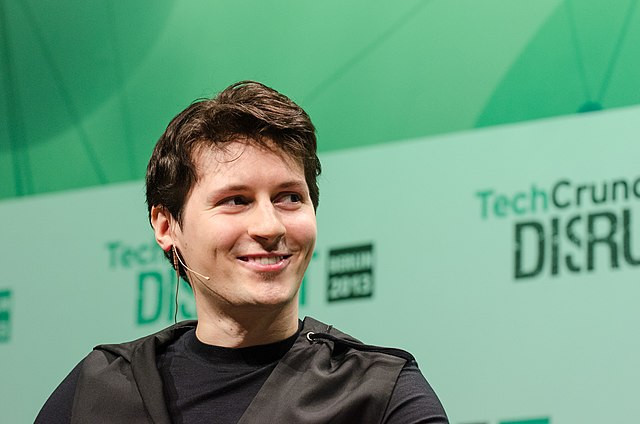French authorities have extended the detention of Pavel Durov, the Russian-born founder and CEO of the popular messaging app Telegram, following his arrest at Le Bourget airport near Paris on Saturday. The extension of Durov's detention, confirmed on Sunday, is part of an ongoing investigation into serious allegations linked to the operations of Telegram, a platform that has become a major player in global communication.
Durov's arrest and subsequent detention have sparked significant international attention, given his status as one of the tech world's most influential figures. The investigation involves accusations that Telegram has failed to adequately moderate illegal activities on its platform, including drug trafficking, organized crime, promotion of terrorism, and the spread of child sexual content. French investigators issued a warrant for Durov's arrest as part of this inquiry, which has led to intense scrutiny of the app's operations.
The initial detention period for questioning, which can legally last up to 96 hours, will allow authorities to further interrogate Durov and determine whether to press formal charges or release him. The situation underscores the growing pressure on tech companies to comply with regulatory standards, particularly concerning the moderation of content that could facilitate criminal activities.
In response to the arrest, Telegram issued a statement defending its CEO and the platform's practices. "Telegram abides by EU laws, including the Digital Services Act - its moderation is within industry standards and constantly improving," the company asserted. "Telegram's CEO Pavel Durov has nothing to hide and travels frequently in Europe. It is absurd to claim that a platform or its owner are responsible for the abuse of that platform."
Durov, who is 39 years old, has lived a life that defies conventional expectations. He founded Telegram in 2013 with his brother, Nikolai, after leaving Russia following a high-profile dispute with the Kremlin. This dispute arose from Durov's refusal to shut down opposition groups on his earlier social media platform, VKontakte. His defiance led him to sell his stake in VKontakte and focus on developing Telegram, which has since grown to nearly a billion active monthly users.
Despite its popularity, particularly in regions like Russia, Ukraine, and the former Soviet Union, Telegram has faced criticism for its lax moderation policies. The app's strong encryption and large group chat features have made it a preferred tool for users seeking privacy, but these same features have also been exploited by extremists, criminals, and conspiracy theorists. In the wake of these challenges, Western governments, including France, have ramped up efforts to regulate platforms like Telegram to prevent the spread of harmful content.
The arrest of Durov has also drawn sharp reactions from Russian officials. The Russian embassy in Paris has expressed frustration over what it describes as France's refusal to cooperate in securing Durov's release. The embassy stated that it has sought access to Durov but has received little response from French authorities. Russian Foreign Ministry spokeswoman Maria Zakharova criticized Western human rights organizations for their silence on Durov's arrest, comparing it to the vocal opposition they expressed when Russia attempted to restrict Telegram in 2018.
Durov's situation has resonated beyond government circles, attracting the attention of high-profile figures in the tech industry. Elon Musk, the billionaire owner of X (formerly Twitter), reposted a clip from an earlier interview where Durov praised Musk's approach to free speech, tagging the post with the hashtag "FreePavel." Musk's involvement highlights the broader concerns about the balance between platform freedom and the need for content moderation.
As Durov remains in detention, the case raises critical questions about the responsibilities of tech platform owners in ensuring that their platforms are not used for illegal activities. Telegram's critics argue that the platform's moderation efforts are insufficient compared to those of other social media giants, pointing to its role in hosting extremist content and facilitating communication among far-right groups.
The outcome of this investigation could have far-reaching implications for Telegram and its operations, particularly in regions where the platform plays a crucial role in information dissemination. The tech world will be watching closely to see how French authorities proceed with Durov's case and whether this marks a turning point in the regulation of digital platforms that prioritize user privacy over government cooperation.






